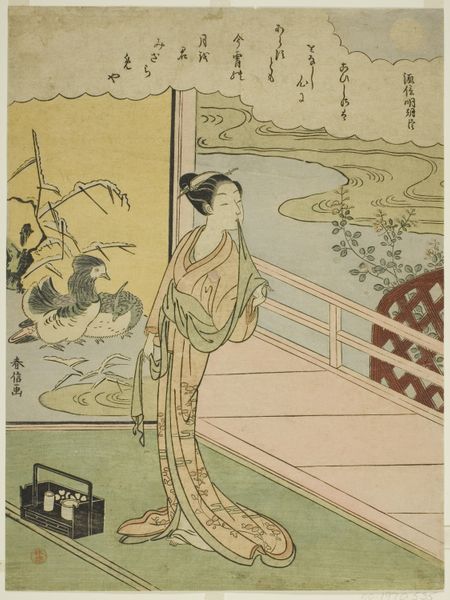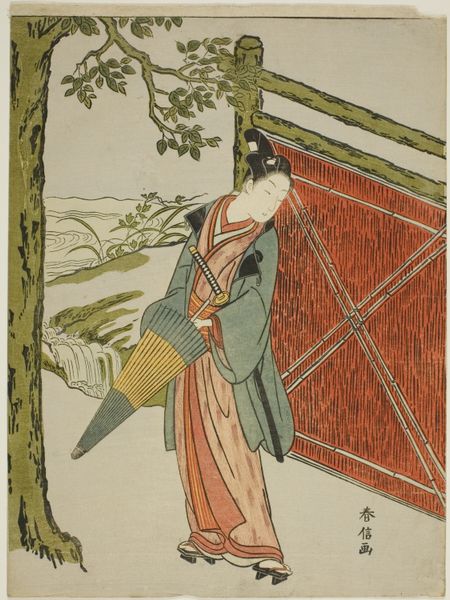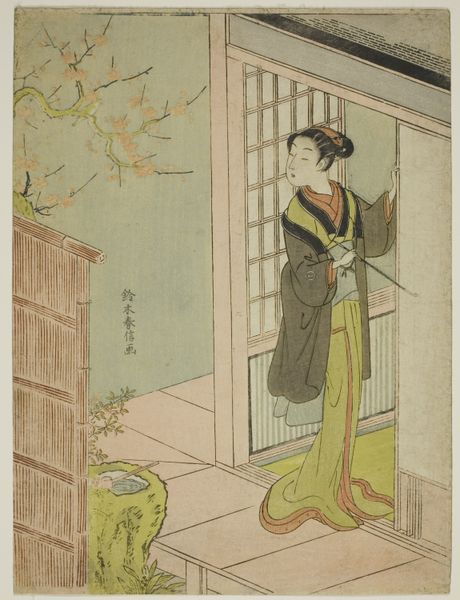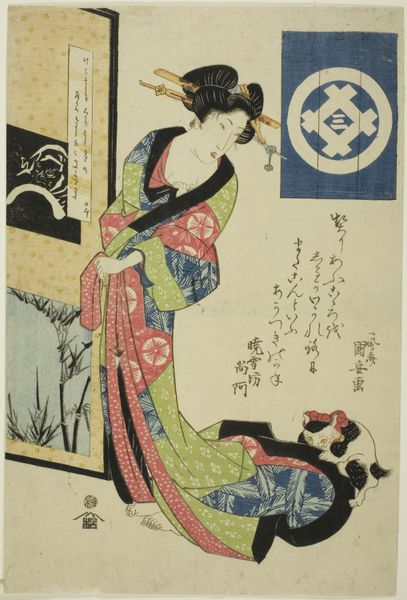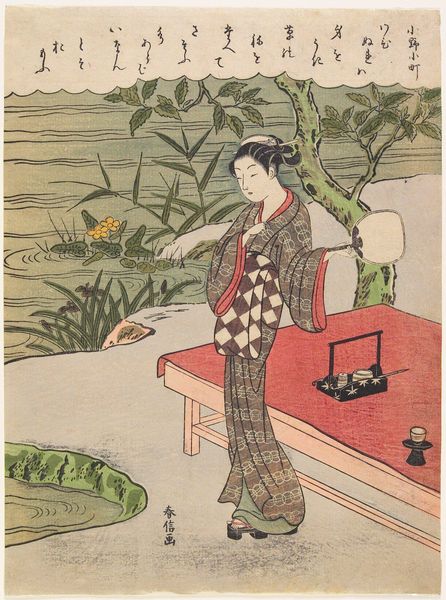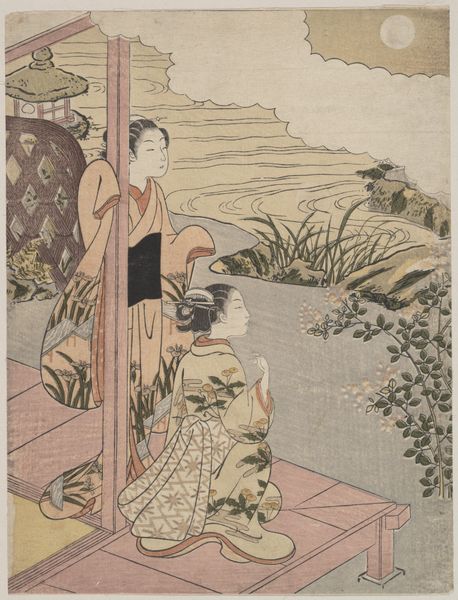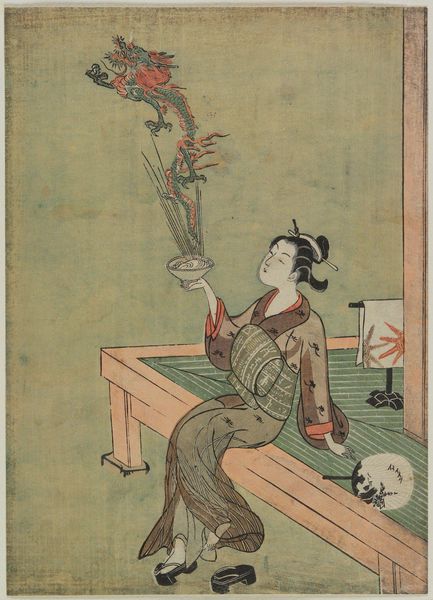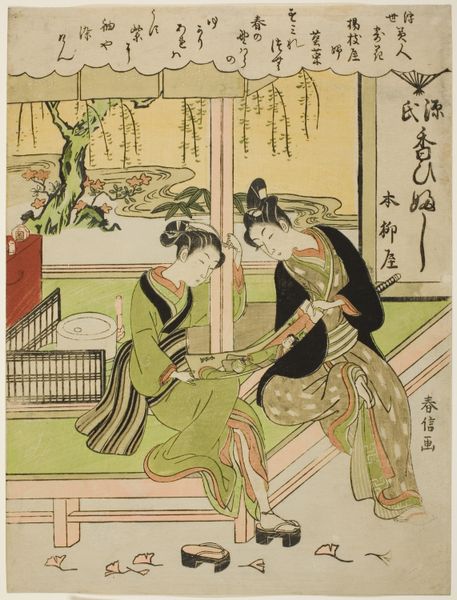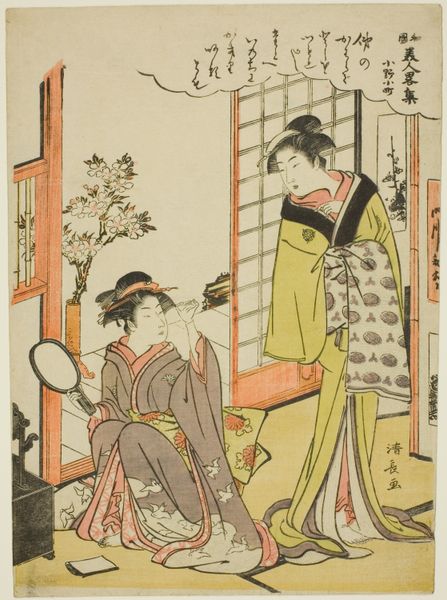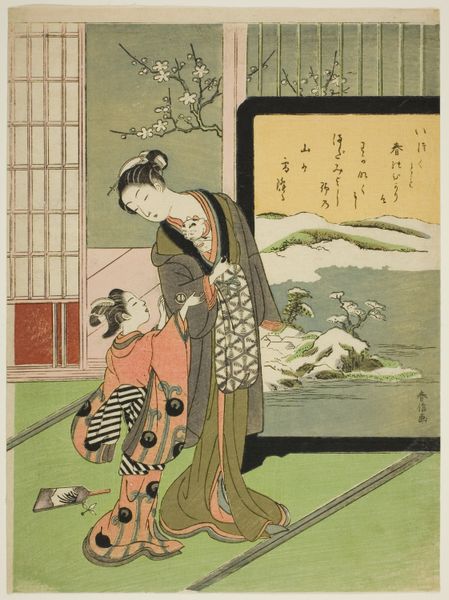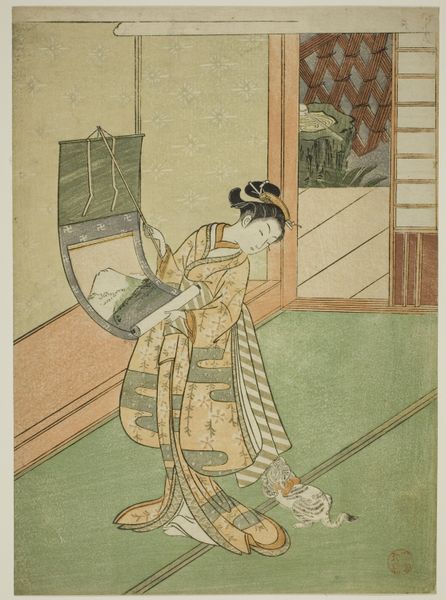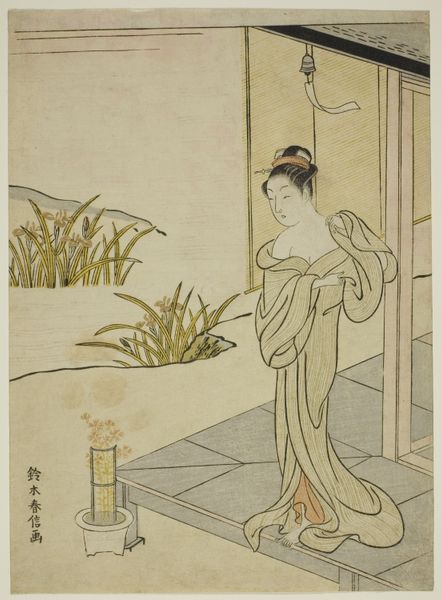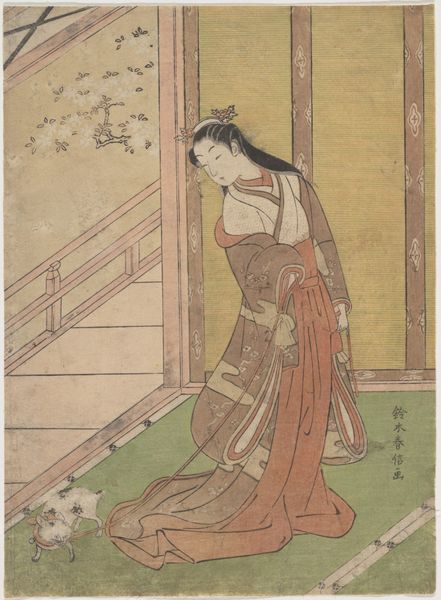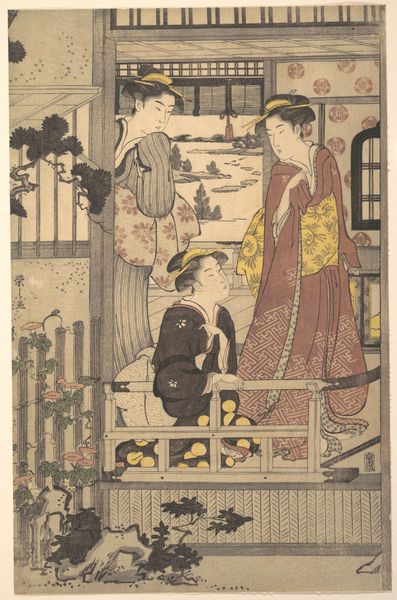
Poem by Fujiwara no Toshiyuki, from an untitled series of Thirty-Six Immortal Poets c. 1767 - 1768
0:00
0:00
#
portrait
# print
#
asian-art
#
landscape
#
ukiyo-e
#
figuration
#
intimism
#
genre-painting
Dimensions: 28.8 × 21.5 cm (11 1/4 × 8 1/2 in.)
Copyright: Public Domain
Editor: We’re looking at *Poem by Fujiwara no Toshiyuki*, a print from around 1767-68 by Suzuki Harunobu. It’s part of a series of Thirty-Six Immortal Poets. There's something incredibly peaceful about the woman's posture and the tranquil landscape behind her. How do you interpret this work? Curator: Observe how Harunobu orchestrates line and form. The rhythmic verticality of the bamboo screen at the right, offset by the gently curving kimono of the figure, establishes a compelling tension. This juxtaposition serves to flatten the pictorial space. Do you see how the artist skillfully renders depth while simultaneously emphasizing the picture plane's two-dimensionality? Editor: I see what you mean about the bamboo and kimono. They seem to compress the space. It’s almost as if the background lake and foliage are a painted backdrop. Curator: Precisely. And notice how the muted color palette contributes to this flattening effect. The subtle variations in tone and hue create a delicate interplay of light and shadow, further emphasizing the aesthetic properties inherent in the print itself, eschewing depth for surface beauty. What do you make of the poem inscription floating over the woman's head? Editor: I didn't notice the relationship, but it almost appears as if it’s her thoughts rising into the air. This artwork reminds me of the concept that beauty can be found in simple structures. Thanks for clarifying. Curator: My pleasure. The piece, ultimately, transcends representational concerns. It serves as a testament to the power of pure form.
Comments
No comments
Be the first to comment and join the conversation on the ultimate creative platform.
